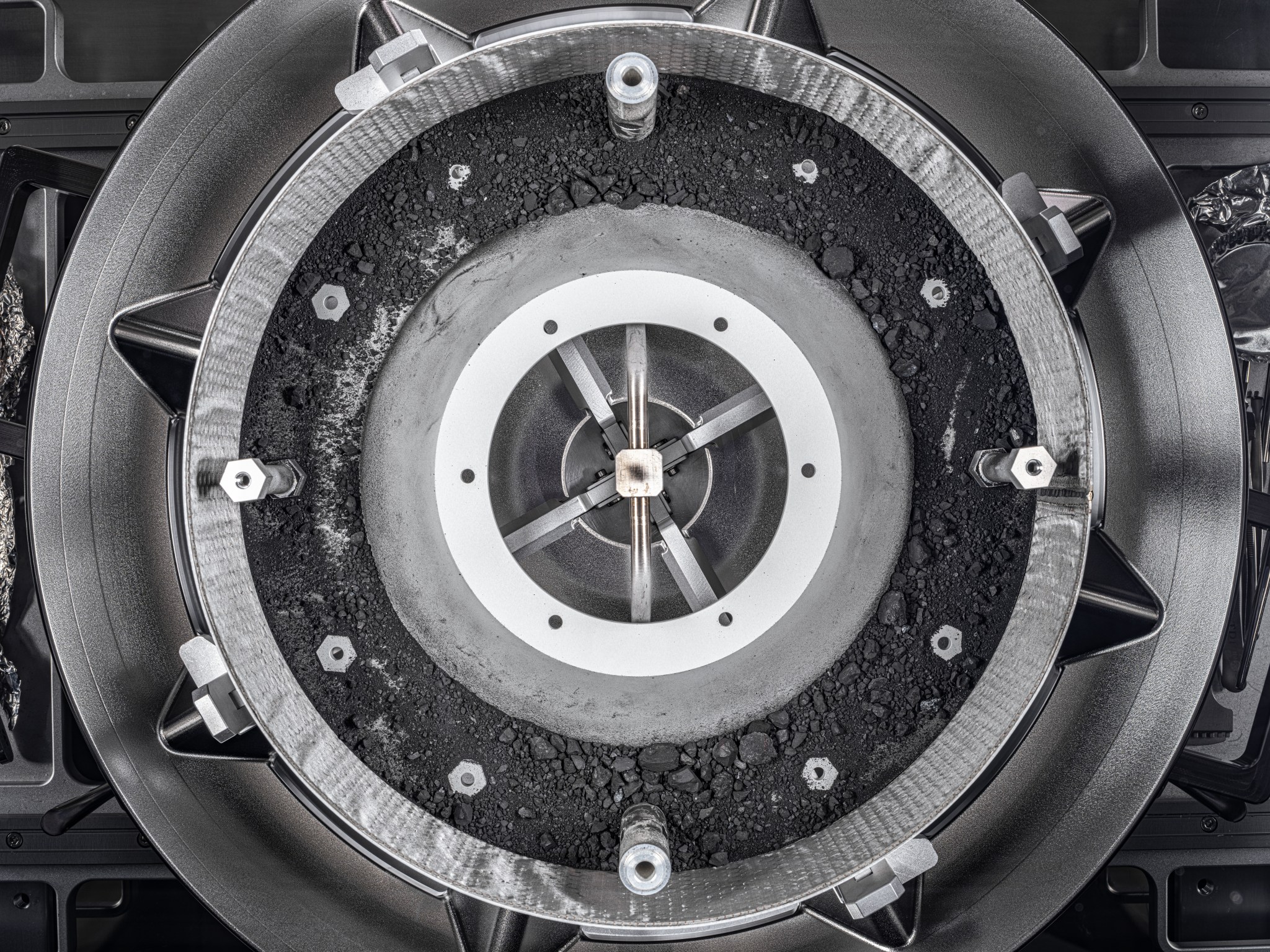

The astromaterials curation team at NASA’s Johnson Space Center in Houston has completed the disassembly of the OSIRIS-REx sampler head to reveal the remainder of the asteroid Bennu sample inside. On Jan. 10, they successfully removed two stubborn fasteners that had prevented the final steps of opening the Touch-and-Go-Sample-Acquisition-Mechanism (TAGSAM) head.
Erika Blumenfeld, creative lead for the Advanced Imaging and Visualization of Astromaterials (AIVA) and Joe Aebersold, AIVA project lead, captured this photograph of the open TAGSAM head including the asteroid material inside using manual high-resolution precision photography and a semi-automated focus stacking procedure. The result is an image that shows extreme detail of the sample.
Next, the curation team will remove the round metal collar and prepare the glovebox to transfer the remaining sample from the TAGSAM head into pie-wedge sample trays.
These trays will be photographed before the sample is weighed, packaged, and stored at Johnson, home to the most extensive collection of astromaterials in the world. The remaining sample material includes dust and rocks up to about 0.4 inch (one cm) in size. The final mass of the sample will be determined in the coming weeks. The curation team members had already collected 2.48 ounces (70.3 grams) of asteroid material from the sample hardware before the lid was removed, surpassing the agency’s goal of bringing at least 2.12 ounces (60 grams) to Earth.
The curation team will release a catalog of all the Bennu samples later this year, which will allow scientists and institutions around the world to submit requests for research or display.
Download high-resolution image here








